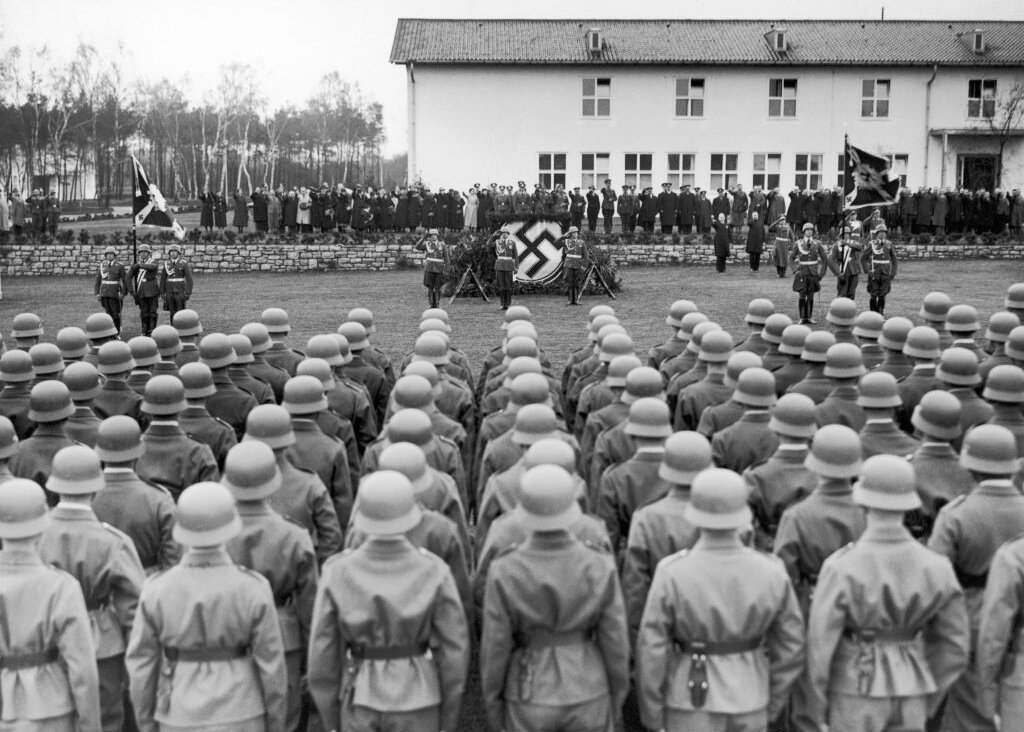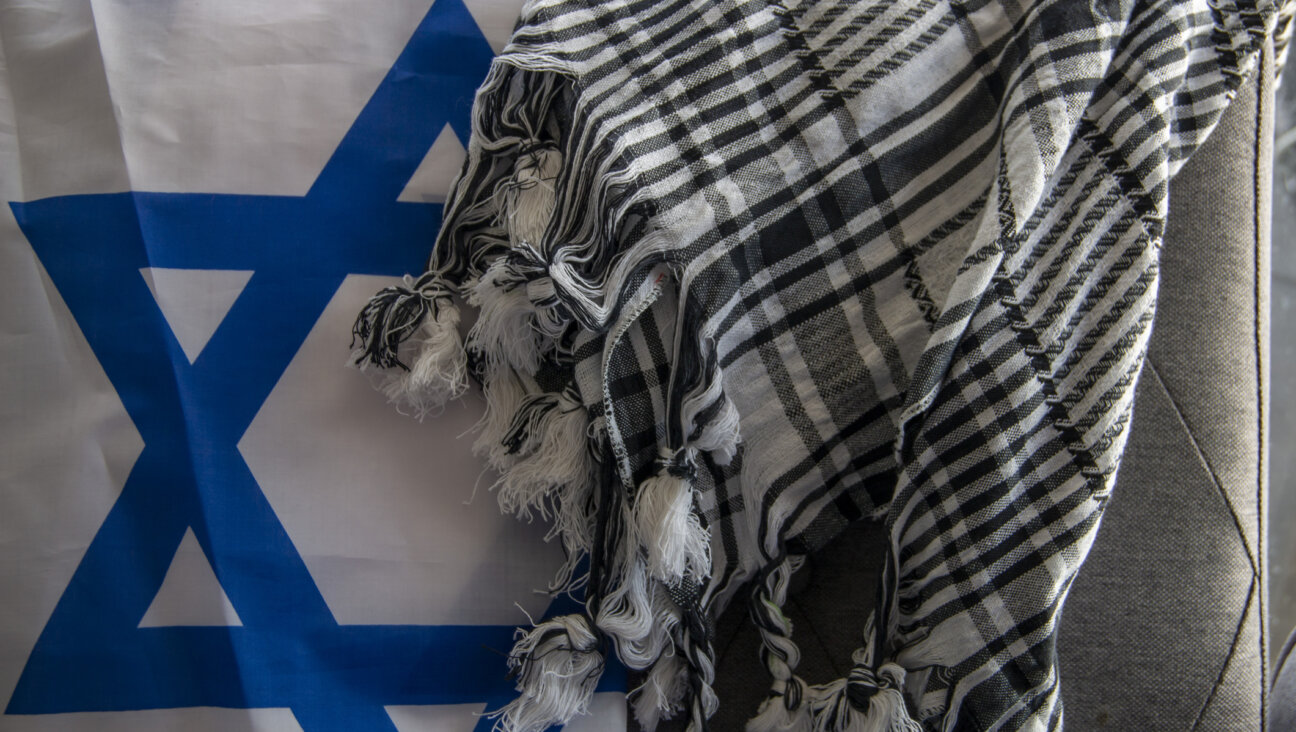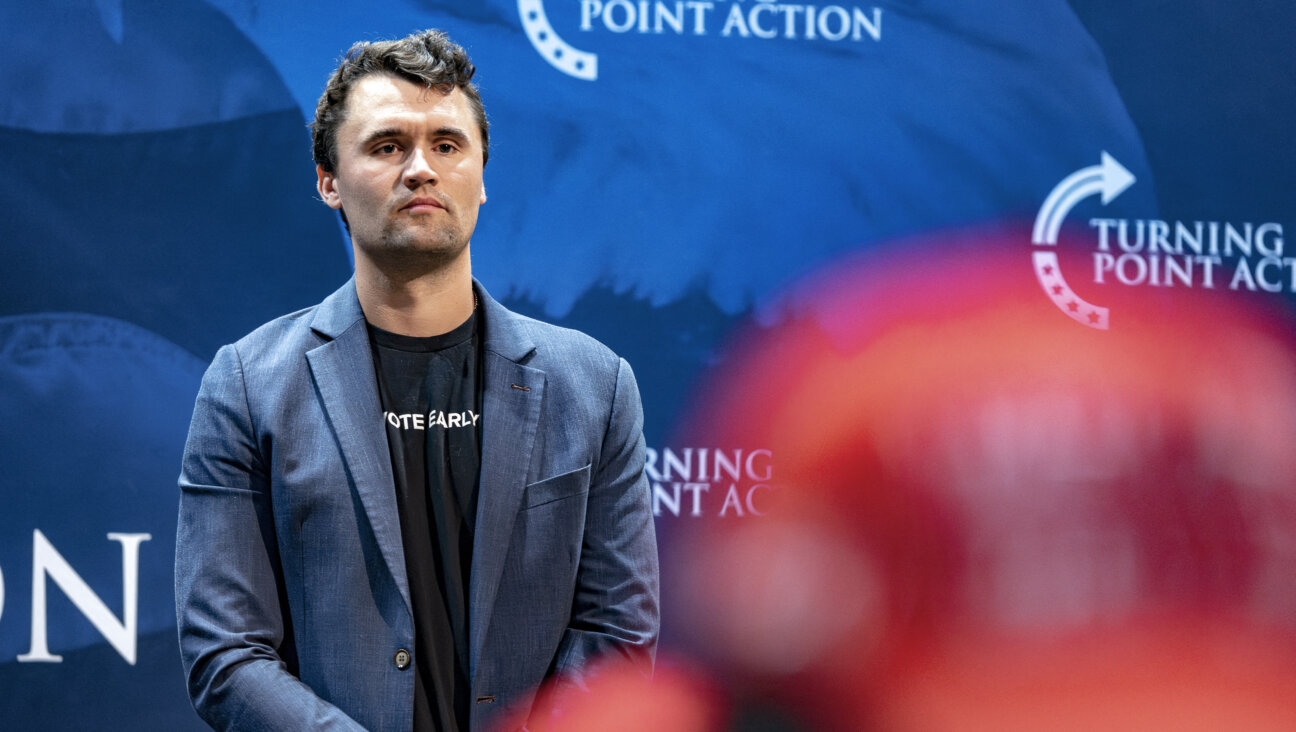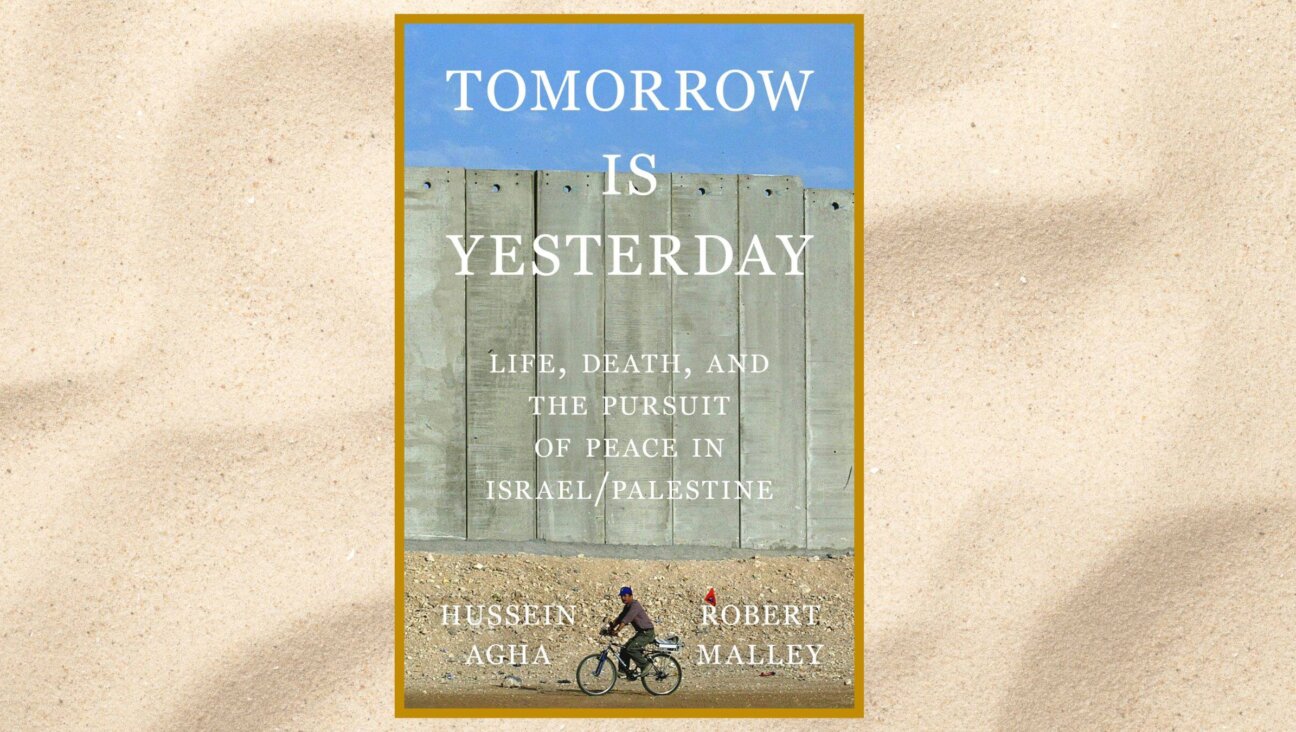Campus ‘Apartheid Week’ Drew Little, Varied Response

Graphic by Angelie Zaslavsky
“Do you suffer from ANIS?”
That’s ANti-ISrael Fixation Syndrome, according to a caustic poster produced by one pro-Israel group in response to Israel Apartheid Week, a global pro-Palestinian event that began on March 1 and featured events on some 14 university campuses across the United States.
The poster showed a drawing of a human posterior and a list of symptoms, asking readers if they, “Project a bloated sense of victimization?” or “Ignore the persecution of non-Arabs in Arab countries…?”
The poster, which has appeared around campus at the University of California, Berkeley and is being made available to other schools, was produced by BlueStarPR, an affiliate member of the Israel on Campus Coalition (ICC). It is one of a variety of disparate responses to Apartheid Week being offered by the member organizations of the ICC, a Hillel-sponsored coordinating body of pro-Israel campus organizations, even as the coalition itself advises against directly engaging Apartheid Week and its supporters.
“Israel Apartheid Week is a tired retread at this point,” said Stephen Kuperberg, the ICC’s executive director. “Rather than throw a spotlight on the lunatic fringe, we would rather have a coordinated approach to promoting Israel in a positive way.”
Apartheid Week, whose name implies a moral equivalence between Israel and apartheid South Africa, supports the Boycott, Divestment, and Sanctions movement, which aims to discredit Israel in the international community and has raised serious concern within the Jewish community. The Week, now in its sixth year, takes place around the same time each year and focuses in particular on college campuses. Speakers at campus Apartheid Week events include Israel critics Norman Finkelstein and Noam Chomsky, as well as anti-Israel boycott advocate Omar Barghouti.
A spokesman for one ICC member organization questioned the usefulness of direct efforts to counter Israel Apartheid Week’s campaign.
“Putting out 10 reasons why Israel is not an apartheid state when the Israeli defense minister said in the last several weeks that Israel is in danger of becoming an apartheid regime may not be successful,” said Noam Shelef, strategic communications director of Americans for Peace Now and its liaison with the ICC. Shelef was referring to a February 2 speech in which Ehud Barak said that Israel “will be an apartheid state” if no peace deal is reached and Palestinians in the occupied West Bank and Gaza do not gain citizenship rights in their own state.
“I think we need to have a real discussion about what the policies are that are problematic — that put Israel in danger of becoming an apartheid state,” Shelef said.
But StandWithUs, another ICC member, took a different stand, in favor of confronting the Apartheid Week advocates directly and going on the offensive. A booklet it produced to help pro-Israel activists respond to Israel Apartheid Week bore an image on its cover of Neda Soltani, the Iranian woman whose videotaped death at a Tehran election protest last June was seen worldwide. The booklet argues that the term “apartheid” should be applied not to Israel, but rather to Muslim societies in the Middle East, based on what it describes as gender inequality, political repression and discrimination against gay men and non-Muslims in Saudi Arabia and other Arab states.
“Unfortunately, the [Palestinian Authority] still uses many of the apartheid practices described in this booklet on their own people,” the booklet states.
“I personally don’t think that’s helpful at all,” said Yahel Matalon, a student at Barnard College and a leader of a J Street-affiliated student group at Columbia University called Just Peace, of the StandWithUs document. Referring to the abuses by Arab states described in the booklet, Matalon said: “Okay, so that’s horrible, but that doesn’t excuse the treatment of Palestinians in Israel today.… If what we’re talking about is peace in Israel, it doesn’t matter what Saudi Arabia is doing.”
StandWithUs CEO Roz Rothstein disagreed, arguing that abuses in Muslim countries are germane because they generally escape notice. “What you’ve got is Islamist governments in the Middle East that are actually operating in legally sanctioned apartheid, and nobody’s talking about it,” she said. “Students, if they want to fight for human rights, should be fighting for these issues of the real apartheid today.”
One student who distributed the StandWithUs brochure at Columbia University’s campus March 1 said that some students objected to the brochure.
“There were some reactions from people that that wasn’t the right message to send, but that the right message would be focusing on the vibrant multicultural society that Israel has built,” said Jacob Shapiro, a member of the Columbia pro-Israel group LionPAC. Shapiro added that the brochure was one of many that his group handed out.
Like the students who confronted Shapiro, Kuperberg supports efforts that counter Israel Apartheid Week indirectly by portraying Israel in a better light. He praised one such program, dubbed Israel Peace Week, founded this year by graduates of Aish HaTorah’s Hasbara Fellowships and funded by small grants from a number of Zionist groups. The program runs concurrently with Apartheid Week on what organizers claim to be more than 40 campuses in North America and Australia.
Organizers of Israel Peace Week offered prepackaged programs to participating campuses. One is a “cafe poetry night to promote democracy and peace in Israel,” according to Anna Richlin, a sophomore at the University of Rochester and a co-founder of Israel Peace Week. Students involved in putting on the night are given a packet of poems to be read during the event. In an e-mail, Richlin explained how one of the poems, titled “From Haifa to Near Faraway Cairo,” promoted democracy and peace: “This poem demonstrates how Israel is a peaceful Democratic nation as it demonstrates how the Jew [in the poem] is yearning for the time when she and the Egyptian [in the poem] could be together as friends in peace…. This portrays how Israel has [established] a foundation for peace, yet she has no partner for peace.”
J Street and its student movement, which is not currently a member of the ICC, published a joint statement condemning Israel Apartheid Week. “Few events better exemplify the counterproductive polarization on campus than ‘Israel Apartheid Week,’” the statement read. “J Street and J Street U are committed to an open, honest and civilized debate that allows students to work constructively towards adopting positions and actions that can help resolve the Israeli-Palestinian conflict.”
J Street U offered no new materials or programs to counter Apartheid Week, but it did reiterate an older program titled “Invest, Don’t Divest,” which is designed to encourage donations to a Palestinian micro-finance group.
Contact Josh Nathan-Kazis at [email protected]















